Myopia Management for Children

Myopia Management for Children
More than two thirds of children in Singapore have myopia by the time they turn 12. With such a statistic, it is no doubt that parents are worried when they start to notice their children displaying symptoms of myopia onset.
What Are The Symptoms Of Childhood Myopia?
Some of the early tell-tale signs that your child may display:
- holding their reading material up close
- excessive blinking
- tilting their head to one side while viewing
- struggling to see the whiteboard in class
- general fatigue
- unable to see the number of oncoming bus
- sitting close to the TV
- squinting their eyes
- frequent rubbing of their eyes
Myopia Correction vs Myopia Control

Once the child has been diagnosed with myopia, it is important to have them put on the pair of glasses that has been prescribed. Correcting for their shortsightedness enables them to go about their daily routine in school and at home. This ensures that they do not have to cope with the inconveniences of not being able to see clearly, causing them to miss out and perform poorly in school or affect their general well being.
Even though myopia cannot be reversed or cured, there are ways where we can manage it to slow down or even prevent further progression. Besides practicing good lifestyle habits, some of the common approaches to myopia control include:
- atropine eye drops
- specialty myopia control soft contact lenses
- orthokeratology (ortho-K)
- myopia control spectacle lenses
Why Is Myopia Control Important?

In myopia, the eyes grow and elongate at an accelerated rate. The longer eyeball length results in the image not being able to focus on the retina, causing blurred distance vision. As the eyeball grows longer, it causes the retina to be stretched.
The stretching of the retina is the real reason why parents should be worried about as it may lead to an increased risk of eye diseases and vision impairment in the later part of the children's life.
Children can undergo myopia control programmes in the earlier stages of myopia to enjoy more benefits of maintaining a low degree of shortsightedness and a better quality of life.
They can potentially avoid wearing thick glasses when they grow up or put up with the inconveniences of not being able to play their favorite sports, or even miss out on their dream careers.


